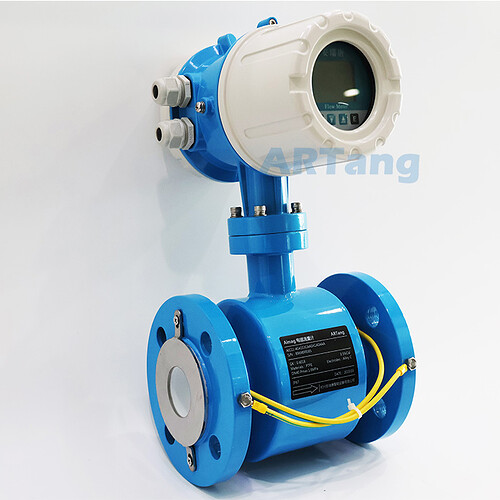- Electromagnetic flowmeter grounding improves to the accuracy, reliability, and safety of these instruments in a number of important ways.
- In many different sectors, electromagnetic flowmeters are used to measure the flow rate of conductive fluids.
The purpose of grounding in electromagnetic flowmeters is explained in detail below:
Electrical Noise Reduction
- Grounding helps in the mitigation of electrical noise, which may interfere with the flowmeter’s signal quality.
- The electromagnetic signals produced by the flowmeter can be affected by electrical noise from adjacent equipment or outside sources, which can result in inaccurate flow measurements.
- Grounding helps eliminate unwanted electrical noise and maintains the integrity of the flow measurement signals by offering a low-impedance connection to ground.
Safety
- Grounding is necessary to guarantee the security of both people and machinery.
- Electromagnetic flowmeters are frequently utilized in industrial settings where there are potential electrical risks.
- An proper grounding helps lower the risk of electrical shocks or equipment damage by preventing stray currents and the accumulation of static energy.
- By allowing fault currents to flow in a safe manner, it reduces the likelihood of electrical accidents.
Signal Stability
- Grounding improves the flow measurement signals’ stability.
- Process control and efficiency can be negatively impacted by signal fluctuations or instability, which can result in inaccurate flow readings.
- Grounding the flowmeter reduces the possibility of signal changes brought on by outside influences, ensuring accurate and constant flow measurement over time.
Protection Against Electromagnetic Interference (EMI)
- Electromagnetic interference from adjacent power lines or electrical equipment can cause electromagnetic flowmeters to malfunction.
- By shielding the flowmeter from outside electromagnetic fields, grounding helps prevent interference and preserve flow measurement accuracy.
- It serves as a barrier to stop outside electromagnetic waves from disrupting the flowmeter’s sensitive electronics.
Compliance with Standards and Regulations
- Electromagnetic flowmeters and other electrical equipment must be properly grounded in accordance with a number of industry standards and regulations.
- Adherence to these guidelines ensures that the flowmeter satisfies the essential safety and functionality criteria.
- Depending on the particular application and the industry standards that apply to it, different grounding requirements may apply.
Protection of Equipment
- Grounding also aids in preventing damage from sudden voltage spikes or lightning strikes to the flowmeter and related equipment.
- Grounding protects against hazardous voltage surges that could otherwise cause device failure or damage through providing a low-resistance conduit to disperse excess electrical energy.
- Grounding is essential to maintaining the precision, dependability, and security of electromagnetic flowmeters in industrial settings.
- Proper grounding contributes to the longevity and optimal performance of electromagnetic flow measuring systems by reducing electrical noise, improving signal stability, guarding against electromagnetic interference, and guaranteeing adherence to safety regulations.

